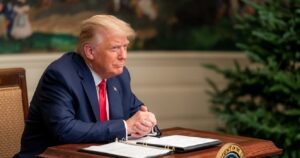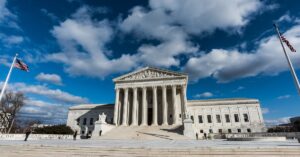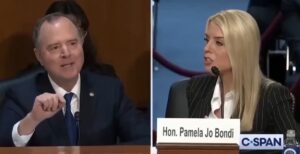Trump accuses Harris campaign of illegal celebrity payments
President Donald Trump has just dropped a bombshell accusation against Kamala Harris’s campaign, claiming they’ve been shelling out millions to celebrities for endorsements in a move he calls flat-out illegal, Breitbart reported.
Trump’s latest charge, aired on Truth Social, alleges that Harris’s team paid hefty sums to stars like Beyoncé, Oprah Winfrey, and Al Sharpton, while supposedly fudging the numbers in their financial records to cover it up.
Let’s start with the timeline: on September 5 and October 1, 2024, finance records show Harris for President paid a total of $500,000 to Al Sharpton’s National Action Network, an organization he founded back in 1991. Just weeks later, on October 20, Sharpton hosted Harris on his MSNBC show, PoliticsNation, tossing her what Trump described as “softball questions.” Well, isn’t that a cozy arrangement?
Big Names, Bigger Payments Under Scrutiny
Moving to October 15, 2024, a Washington Examiner report revealed Harris’s campaign paid $1 million to Oprah Winfrey’s company. Oprah, who appeared with Harris at a televised townhall in September and a rally in Philadelphia the night before the election, later denied media claims of receiving that sum, according to Breitbart News in November. Still, the optics of a seven-figure check don’t exactly scream “just friends helping out.”
At that Philadelphia rally, Winfrey warned women that failing to vote could mean losing the right altogether—a powerful message, but one Trump suggests might have been bought. If true, that’s not inspiration; it’s a transaction.
Then there’s Beyoncé, who Trump claims was paid a staggering $11 million for an endorsement, despite not performing and leaving the stage to a reportedly booing crowd. Harris’s campaign denies the payment was for an endorsement, though Federal Elections Commission records, as reported by The Hill, show a $165,000 payment to Beyoncé’s production company. That’s quite the discrepancy—someone’s math isn’t adding up.
Trump Demands Answers on Endorsement Deals
Trump didn’t stop there, alleging Harris’s campaign paid $3 million in “expenses” to Oprah and $600,000 to Sharpton, whom he called a “total lightweight” on a low-rated TV show. He insists these figures were “incorrectly stated” in the campaign’s books. If accurate, that’s not just sloppy accounting; it’s a potential legal minefield.
Quoting Trump directly: “These ridiculous fees were incorrectly stated in the books and records.” That’s a serious charge, implying not just bad judgment but deliberate deception. If the numbers don’t match the story, someone’s got explaining to do.
Trump also mused about other celebrities, questioning how much Harris paid Bruce Springsteen for a campaign performance and whether he took the cash. It’s a fair question—when campaigns start looking like concert promoters, you’ve got to wonder where the line is drawn.
Legal Limits on Campaign Spending Questioned
Trump’s core argument is simple: “YOU ARE NOT ALLOWED TO PAY FOR AN ENDORSEMENT.” He’s calling for a major investigation, arguing that paying for endorsements under the guise of entertainment fees is a desperate ploy to boost Harris’s crowd sizes. If laws were broken, as he alleges, there’s no dodging the consequences—turns out actions do have a reckoning.
Finance records paint an even bleaker picture for Harris’s campaign, which reportedly ended $20 million in debt despite raising a whopping $1 billion. That kind of financial hole raises eyebrows—were these celebrity payments a last-ditch effort to buy momentum? It’s a question worth asking.
Trump’s post on Truth Social didn’t mince words: “Kamala, and all of those that received Endorsement money, BROKE THE LAW.” He’s pushing for prosecution, arguing that allowing politicians to buy endorsements would unleash chaos. It’s hard to disagree—politics shouldn’t be a pay-to-play game.
Conservative Concerns Over Campaign Ethics
From a conservative standpoint, this saga highlights a troubling trend of progressive campaigns leaning on celebrity glitz to mask weak policy substance. If Trump’s accusations hold water, it’s not just unethical—it’s a slap in the face to voters who expect authenticity, not a Hollywood script.
Yet, let’s keep perspective—allegations aren’t proof, and Harris’s team has pushed back on some claims, like the Beyoncé payment. Still, with millions reportedly changing hands and records showing discrepancies, there’s enough smoke here to warrant a closer look. Transparency isn’t optional; it’s mandatory.
At the end of the day, Trump’s call for an investigation resonates with those of us who believe in fair play over fame. If campaigns can buy star power to sway elections, what’s left of the democratic process? It’s a slippery slope, and we’d better start climbing back up before it’s too late.




